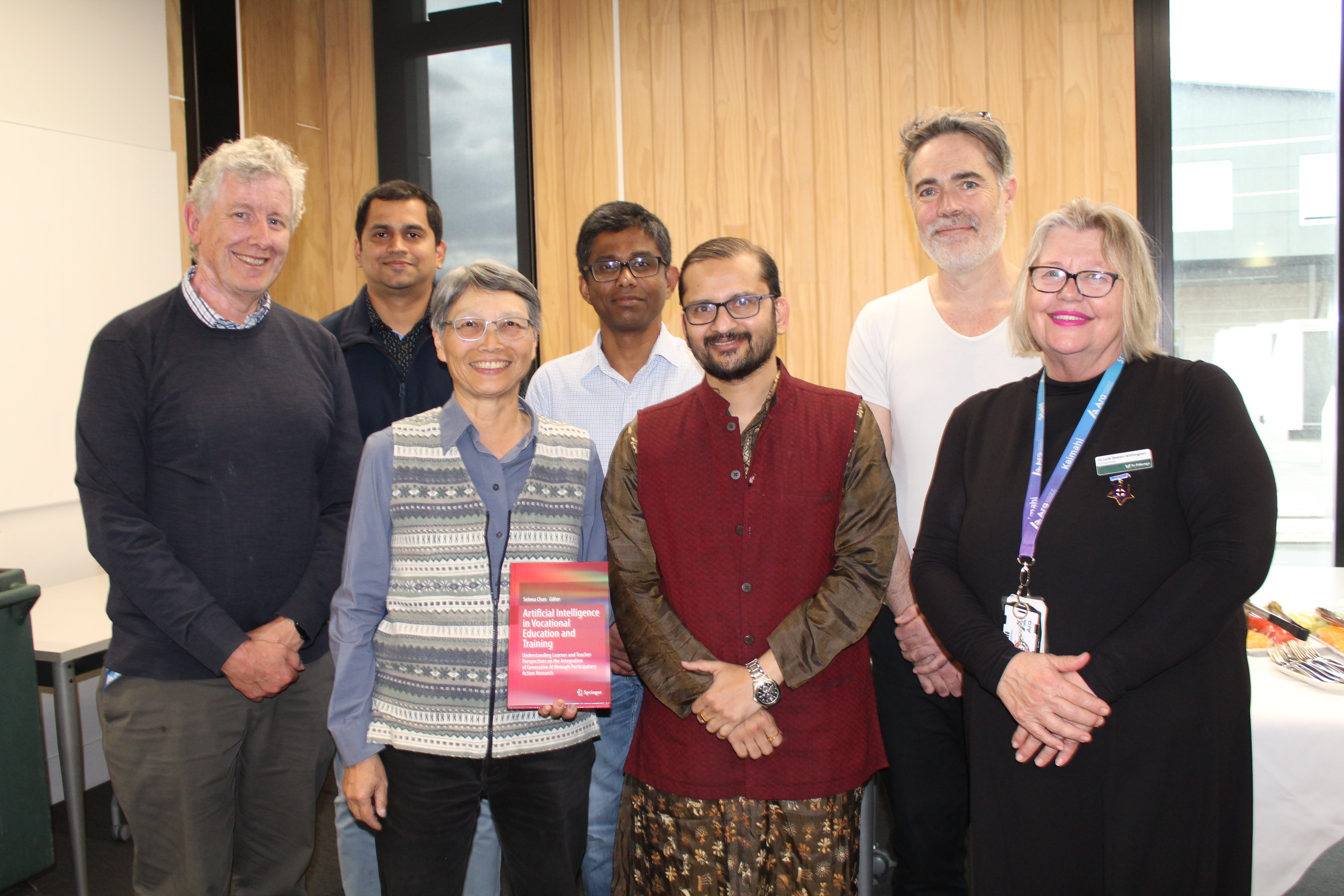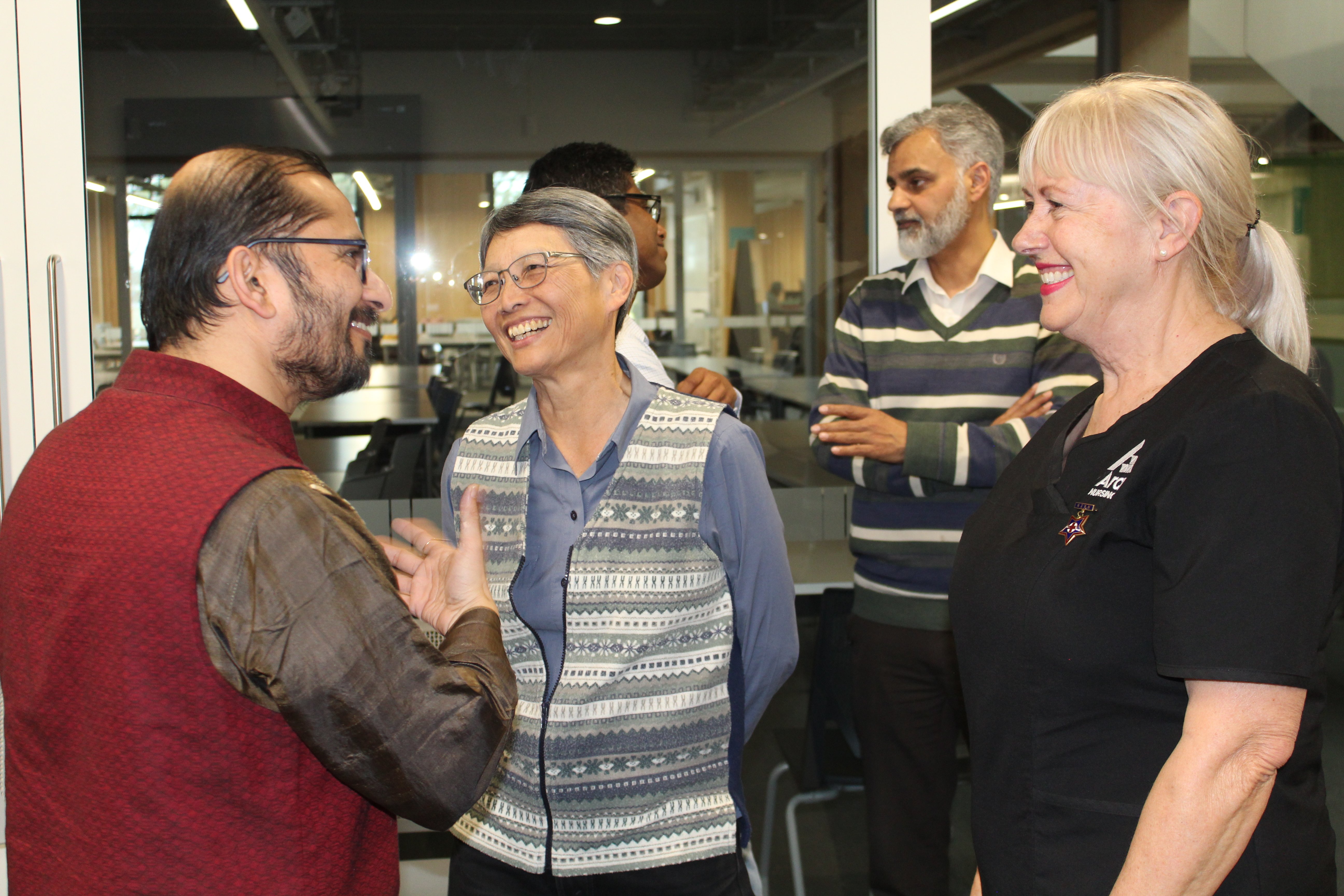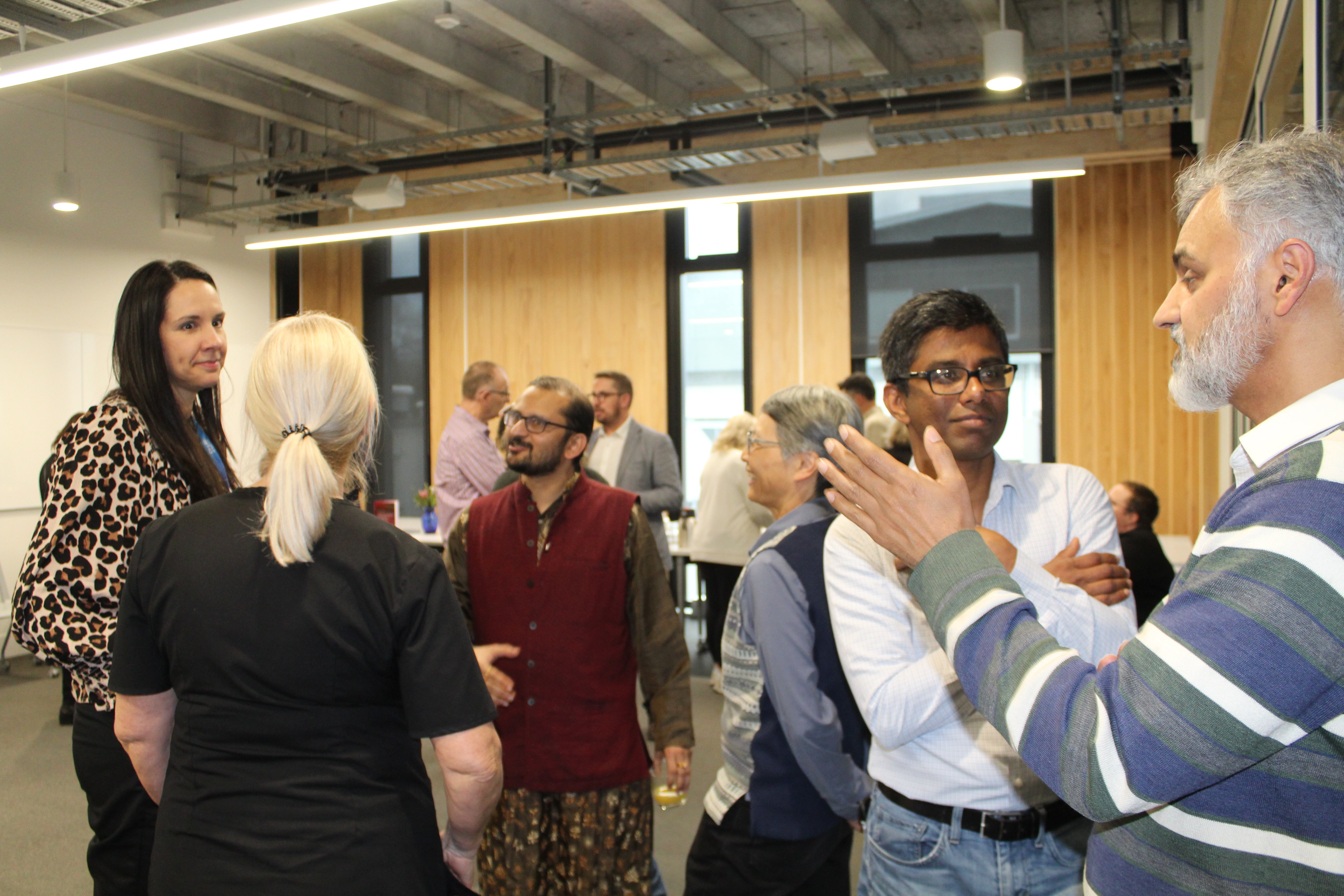Ara officially launches groundbreaking AI education book
01 September, 2025
Reframing narrative from plagiarism panic to pedagogical potential

Contributing authors (left to right) Alan Hoskin, Sundeep Chowdary Daggubati, Selena Chan, H.M.R.S.S. Gunawardana, Amitrajit Sarkar, Carl Pavletich and Julie Bowen-Withington. Absent: Rachel Evelyn van Gorp and Rea Daellenbach.
Boldly challenging prevailing narratives around artificial intelligence in education, Ara Institute of Canterbury has officially launched AI in Vocational Education and Training - pioneering research that positions AI as a transformative tool for learning.
The launch event, held at Ara’s Kahukura building last week, brought together researchers, educators, and guests to celebrate the culmination of a multi-year collaboration between Ara and Otago Polytechnic.
Published by Springer Nature, and already downloaded almost 1400 times, the work was edited by Dr Selena Chan, an award-winning education developer and academic capability leader at Ara.
She said the studies, grounded Participatory Action Research (PAR) methodology, were ethically challenging and world leading.
“Vocational education institutions simply don’t publish or share enough about what we do and yet we deliver such excellent pedagogy,” Chan said.
“The voices of our practitioners and our ākonga are so important. We often start from a point of significant challenges and greater needs. We need to celebrate the great work that we do for our ākonga, push the barriers and share it widely,” she said.


In contrast to headlines focusing on the New Zealand universities cracking down on AI use in assessments, Ara’s approach embraces AI as a catalyst for critical thinking, digital literacy, and inclusive learning.
The publication offers practical guidelines, ethical frameworks, and case studies across disciplines including nursing, construction, business, and design. It also highlights a major initiative supporting neurodivergent learners through AI-adapted tools and activities.
Already, dozens of foundation learners at Ara, Otago Polytechnic and Hagley Community College have trialled AI tools developed in-house by Ara academics and advanced ICT students.
Kaiako (teachers) report increased engagement and improved learner confidence, while students describe AI as a “study buddy” that helps them reflect, plan, and grow.
This collaborative effort involved educational developers, learning designers, tutors, and senior students. Ara’s Research Manager and Otago Polytechnic’s Director of Rangahau, Research and Postgraduate Studies, Scott Klenner, played a key role in embedding mātauranga Māori and rangahau principles into the research design - ensuring the work reflected Aotearoa’s diverse learning communities.
Speaking on behalf of Ara ‘s research committee Portfolio Manager for Science Sustainability and Early Learning, Dr Allen Hill, drew on a whakataukī to celebrate the work of the researchers.
“‘Ehara taku toa i te toa takitahi, engari he toa takitini’ - success is not the work of an individual, but the work of many – is truly applicable here,” he said.
Hill said to be published by Springer was testament to the quality of the work which exemplified practice-based inquiry.
"Under Selena’s expert guidance, this publication, which sits at the nexus of theory and practice covers a hugely important topic. Exploring how AI impacts education poses one of the most pivotal changes for our society since the industrial revolution,” Hill said.
Dr Chan highlighted the essential role of ākonga (students), whose insights directly informed the development of AI-enhanced learning activities designed to build independent thinking and real-world application.
“The work doesn't stop. We’re continuing with AI projects, working internationally to help produce customised platforms and chat bots for our learners. The future is learning that is unconstrained by inflexible training packages,” she said.
The celebration marks not just the release of a book, but the beginning of a wider conversation about how vocational education can harness AI to prepare learners for the workplaces of the future - ethically, inclusively, and effectively.